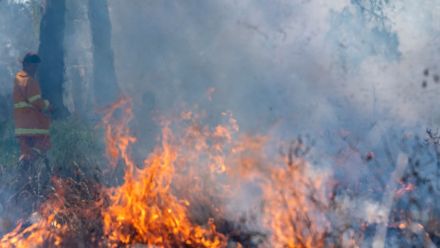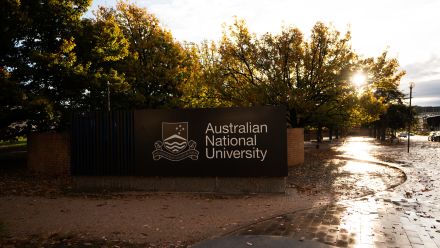Unpacking Solomon Islands’ security pact with China
Solomon Islands will pose an immediate test for the true quality of our diplomacy and what it means to be a Pacific partner.
The tide is turning on the security of Solomon Islands after its Prime Minister Manasseh Sogavare signed a security pact with China on March 30.
This week, that ripple became a wave that engulfed the political landscape of Australia after Mr Sogavare suggested in parliament that Australia and its allies were trying to undermine his government.
Distinguished Policy Fellow at the ANU Coral Bell School of Asia Pacific Affairs and former Australian High Commissioner to Solomon Islands, James Batley said Mr Sogavare was a strongly nationalistic leader.
"The extravagant rhetoric he has used in parliament is characteristic of his style. He has strong political skills, but over the course of his long career he has not always able to keep everyone on the boat at the same time," Mr Batley said during an .
"While PM Sogavare has said that Australia remains his country's primary security partner, his most recent comments would seem to cast doubt on his commitment to that position. If a security issue arose in future, and China was called on at the same time as Australia, that could be very difficult to manage."
Mr Batley said that most Solomon Islanders would be perplexed, and dismayed, by their Prime Minister's hostile and aggressive language against Australia.
Research fellow at the ANU Department of Pacific Affairs Dr Denghua Zhang closely examined Chinese foreign aid and trilateral cooperation in Asia-Pacific during his PhD. He and his co-authors said Solomon Islands would likely receive more attention and support from external players.
"The pact has come at a critical time, when the Pacific region is faced with growing pressure from both traditional and non-traditional challenges, including climate change, geopolitical rivalry, illegal fishing, COVID-19, and the disintegration of the Pacific Islands Forum, to name a few," Dr Zhang and his co-authors told .
They said the security pact is not front and centre in the minds of the vast majority of people, who live in rural areas of Solomon Islands, and are more concerned about their gardens, fishing grounds, or plantations of cocoa and coconut.
Professor of International Security and Intelligence Studies at the ANU Strategic and Defence Studies Centre John Blaxland has long called for Australia to offer a 'grand compact' to Pacific Island nations.
Professor Blaxland told the this would give Australian citizenship to Pacific islanders in return for partnerships covering management and policing of their vulnerable exclusive economic zones and territories. Australia would offer residency rights and potentially citizenship to just over 244,000 people and help administer and guarantee sovereignty to a cumulative exclusive economic zone of more than 5.118 million square kilometres.
Historically, Australia led the Regional Assistance Mission to Solomon Islands (RAMSI) from 2003 to 2017, and continues to provide training to the Royal Solomon Islands Police Force.
More broadly, Australian-funded police development programs are in place across the Pacific, and Australia's Defence Cooperation Program supports both those Pacific Island countries which maintain military forces, and major regional initiatives such as the Pacific Maritime Security Program which provides patrol boats to Pacific Island Forum countries.
Albeit at a much lower level, Beijing has provided security-related training and equipment to Vanuatu, Samoa, Cook Islands and Papua New Guinea.
Head of the ANU National Security College (NSC) Professor Rory Medcalf said the very real prospect of Chinese security forces becoming the go-to provider of internal security in the fractured democracy could lead to a vicious circle of repression and chaos.
"A catalyst for rioting in Honiara has been anger at the government's new closeness to China, so using Chinese forces to suppress such discontent will ultimately aggravate it," Professor Medcalf told the .
Pacific Fellow at ANU Australia Pacific Security College Dr Henry Ivarature told the this week that the sovereignty of Solomon Islands is at stake.
"The Pacific does not want to put itself in a situation where tensions arise," Dr Ivarature said.
"The philosophy of the region is one of peace and security, and when you are framing relations with other states, you always have to see the implications for your own security and the security of the region in general.
"My fear is that the more we apply pressure, we can create a situation where Sogavare becomes very stubborn, and as he becomes stubborn, we know the Solomon Islands becomes fragile which could potentially open a Pandora's Box of instability."
Professor Medcalf said the same exceptional grassroots diplomacy - displayed by Australia, New Zealand and Pacific partners in Solomon Islands in 2003 - is needed again.
"For whoever wins the right to advance Australia's interests on 21 May, Solomon Islands will pose an immediate test for the true quality of our diplomacy and what it means to be a Pacific partner," he said.


